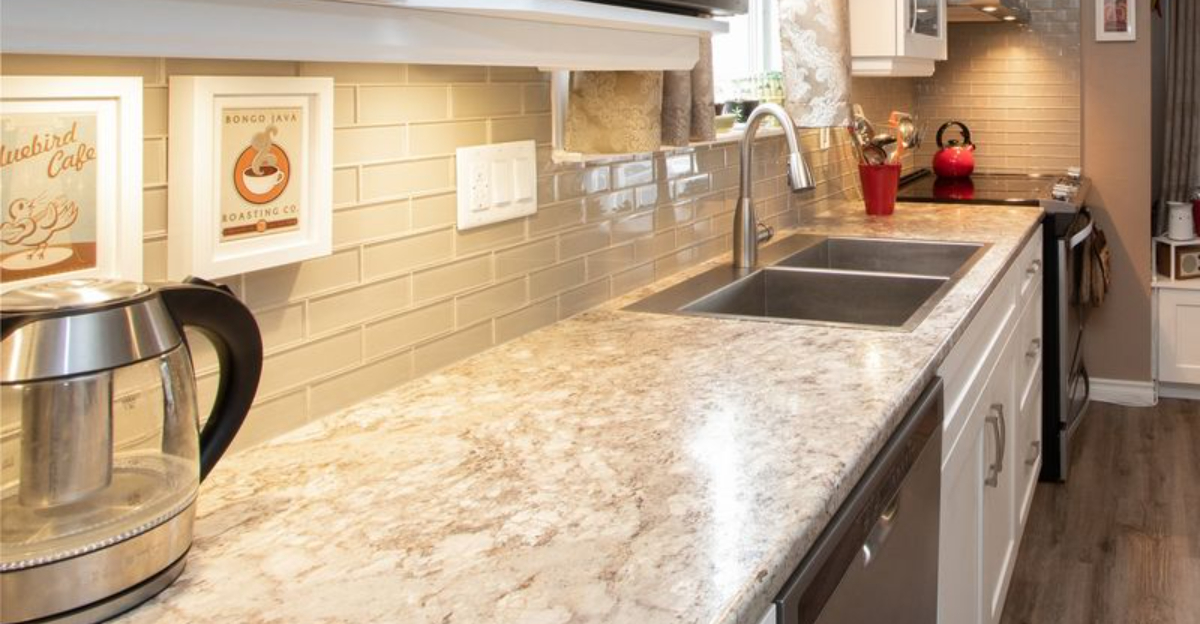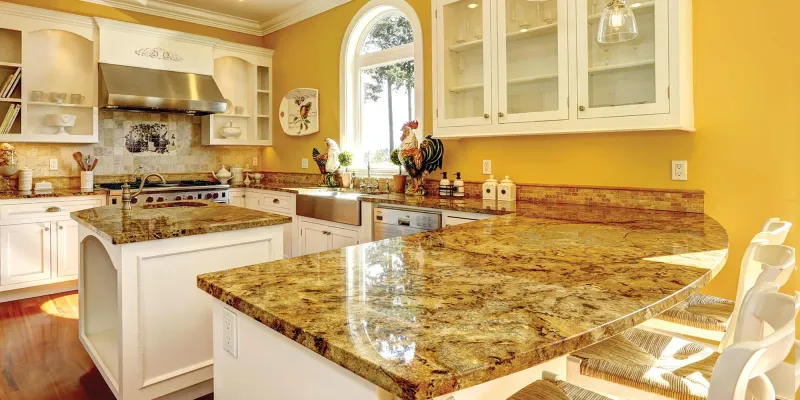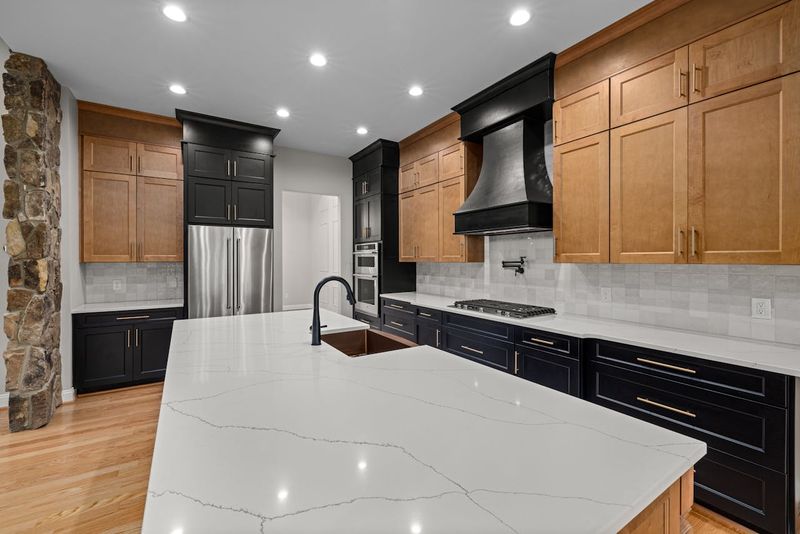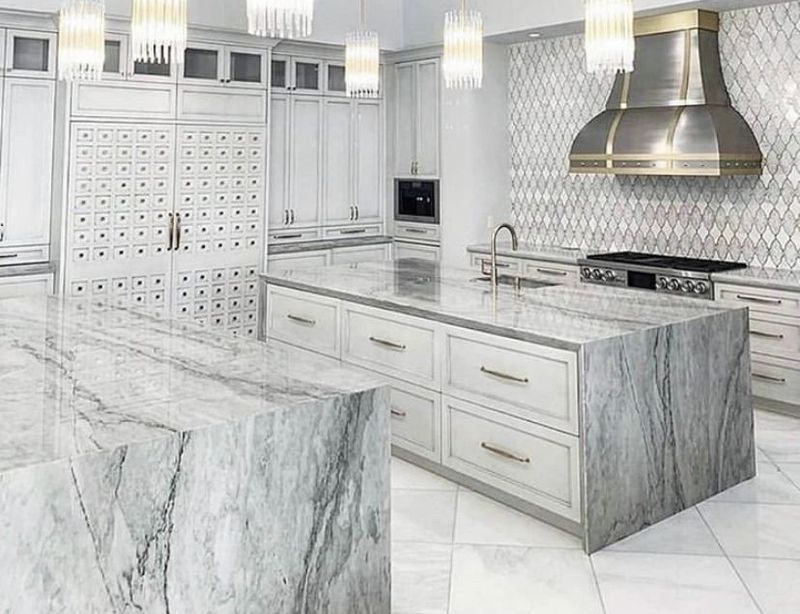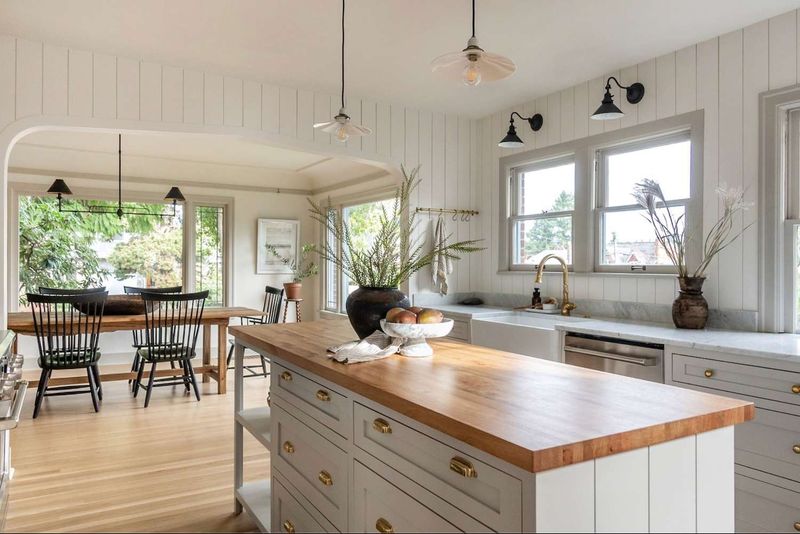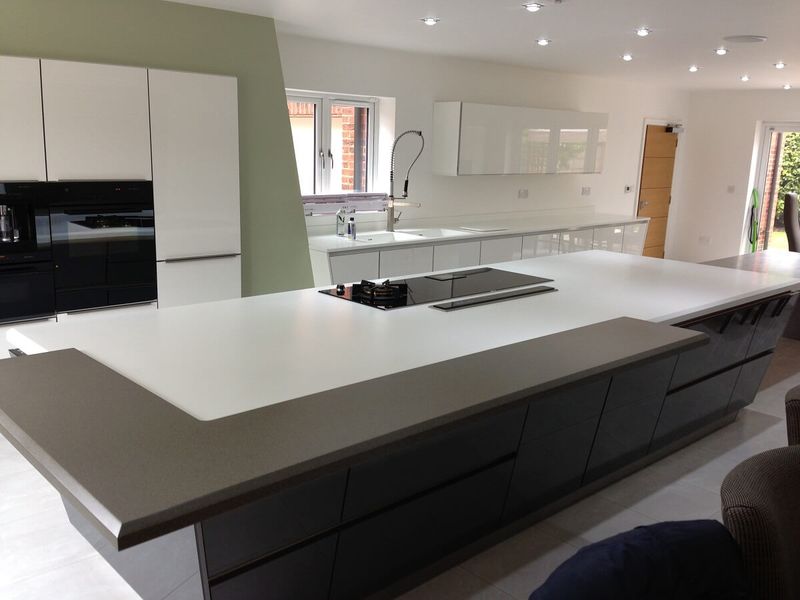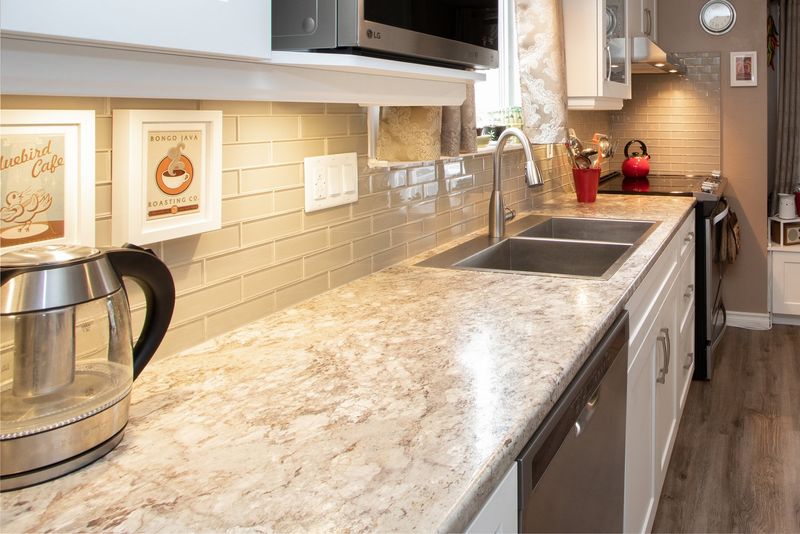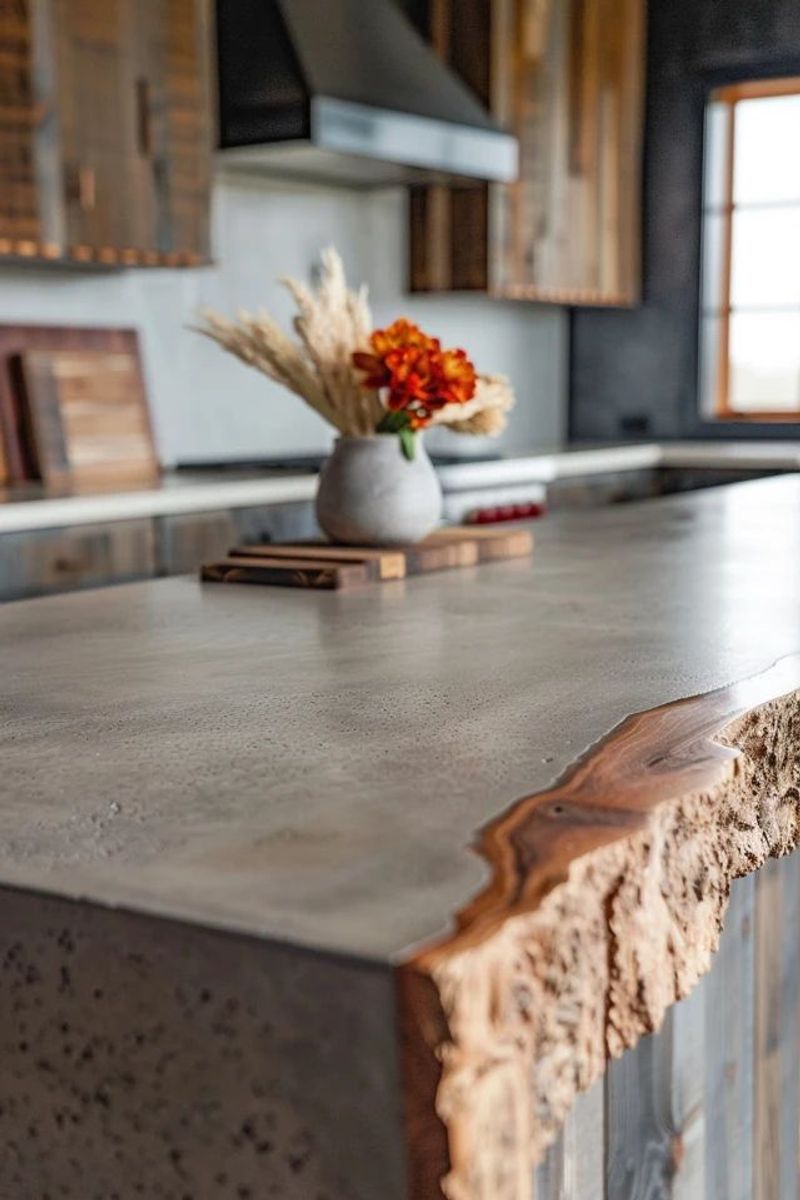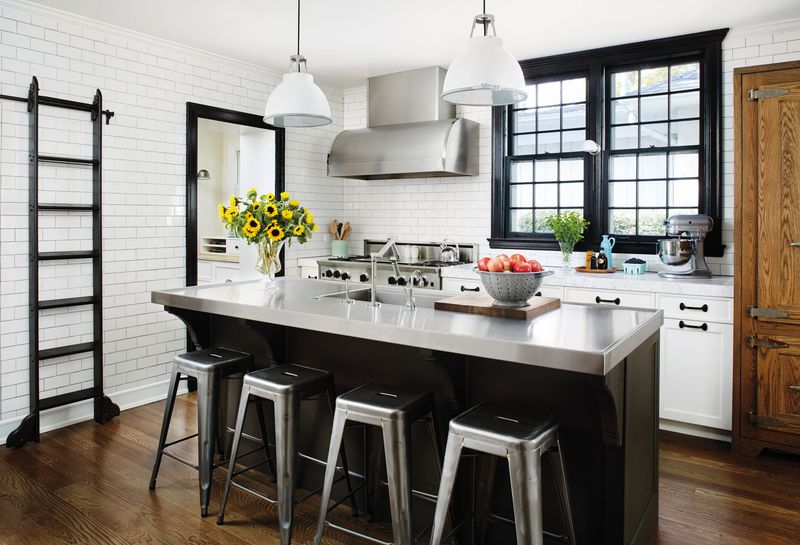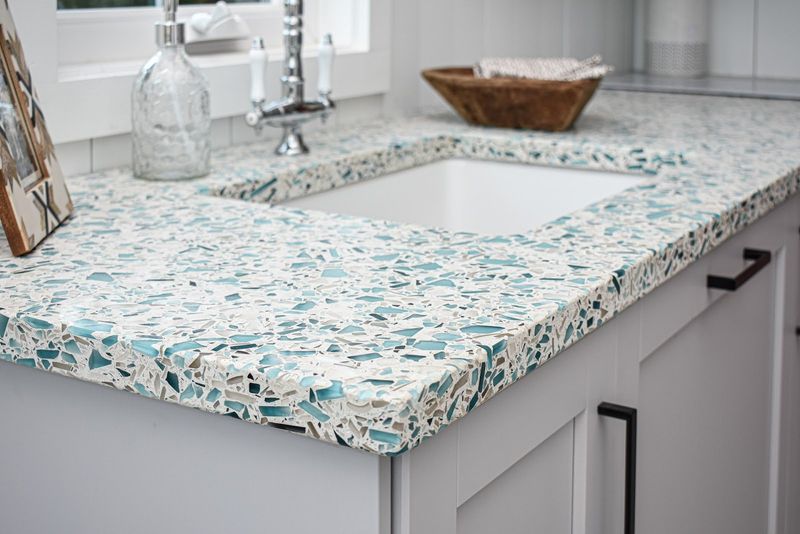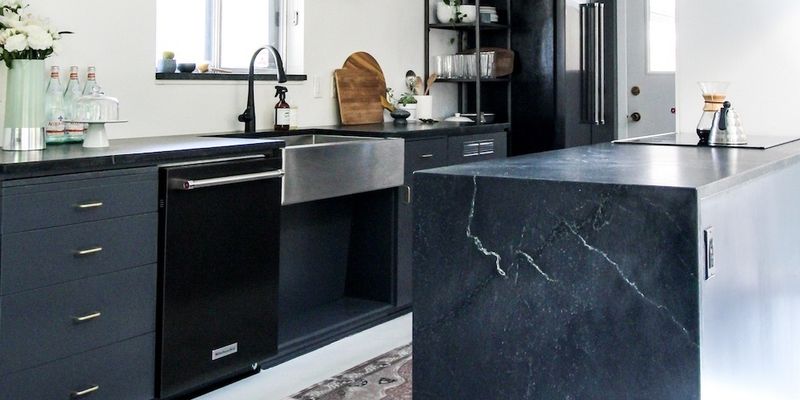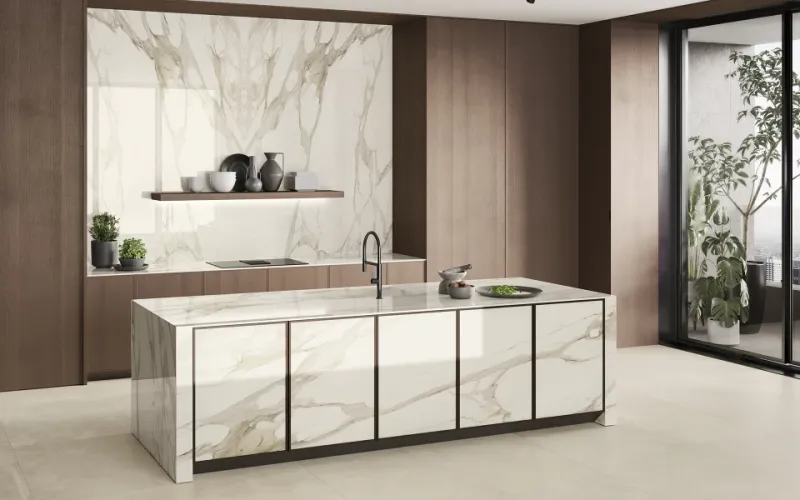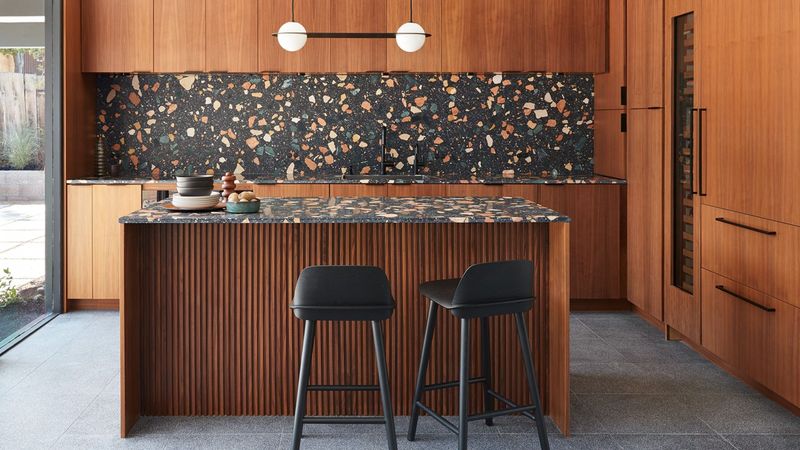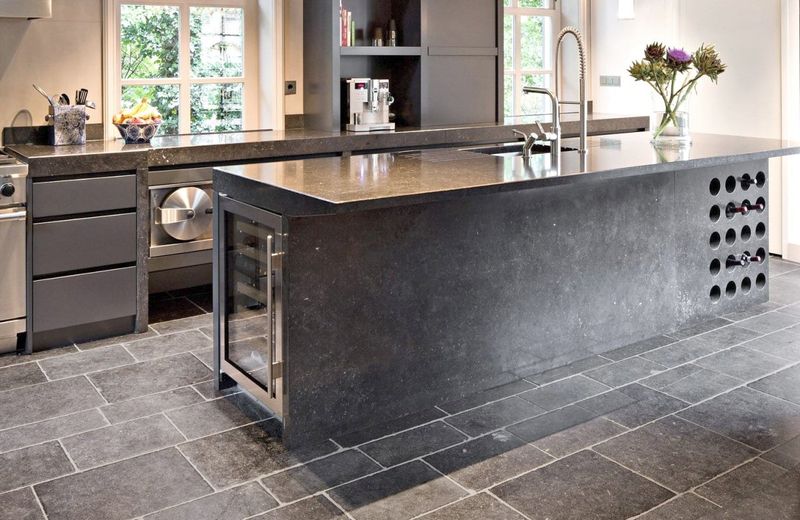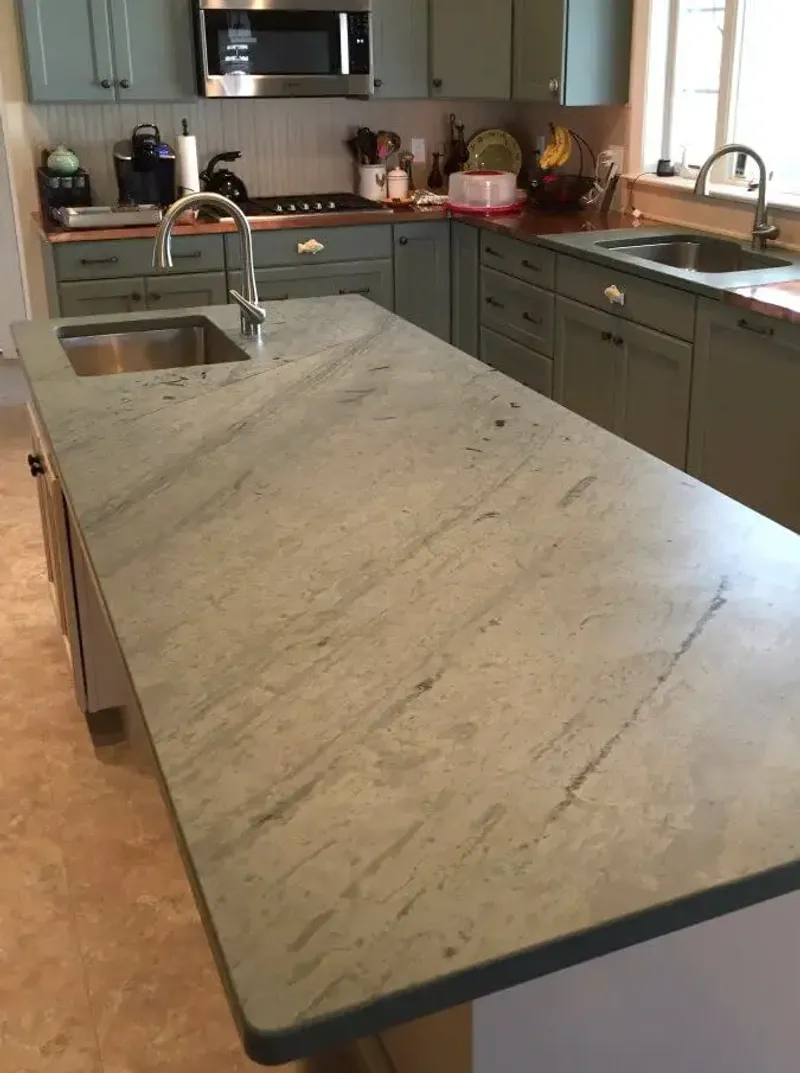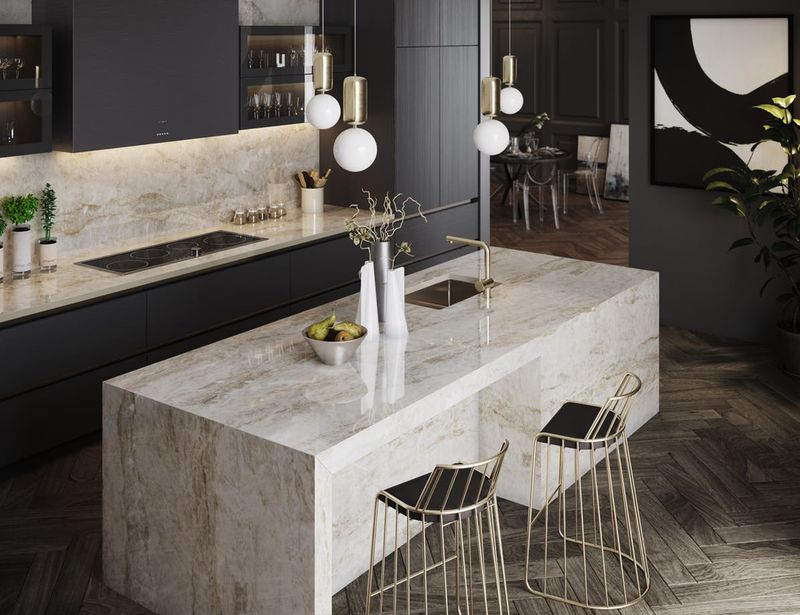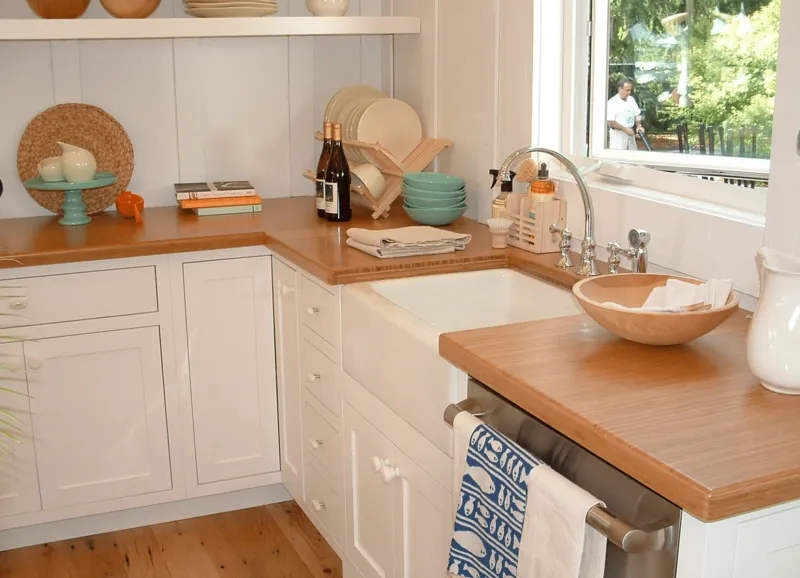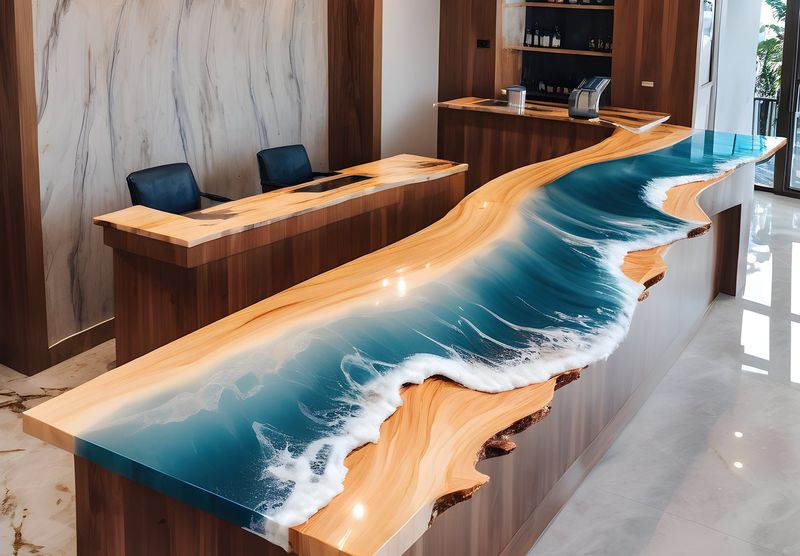Kitchen renovations can be exciting yet overwhelming, especially when choosing the perfect countertop.
With so many materials available today, it’s easy to get lost in options that vary in durability, maintenance, and aesthetics.
Understanding your countertop choices is crucial since they’re both a major investment and the visual centerpiece of your kitchen. That’s why I’m bringing you this list of 17 types of countertops to get to know them better!
1. Granite Countertops
Ever wondered why granite remains a top choice decades after it first gained popularity? This natural stone brings unmatched elegance with its unique crystalline structure and varied color patterns.
When properly sealed, granite resists scratches, heat, and stains remarkably well. Many homeowners love that no two granite slabs are identical – your countertop will be completely one-of-a-kind!
Though requiring occasional resealing, the timeless appeal and excellent durability make granite worth considering despite its premium price point.
2. Quartz Countertops
Unlike natural stone options, quartz countertops are engineered using approximately 90% ground natural quartz combined with resins and pigments. This manufacturing process creates an incredibly durable, non-porous surface that never needs sealing.
What makes quartz particularly appealing is its consistent appearance – you’ll get exactly the color and pattern you choose from samples.
3. Marble Countertops
Bakers worldwide swoon over marble’s naturally cool surface, perfect for working with pastry and dough. The distinctive veining patterns create a luxurious, timeless look that’s been treasured for centuries in high-end homes.
Regular sealing helps protect your investment, but marble will develop a patina over time – some consider this lived-in look part of its charm.
4. Butcher Block Countertops
Imagine bringing the warmth and natural beauty of wood directly into your food preparation area. Butcher block countertops, typically crafted from maple, oak, walnut, or cherry, add instant coziness to any kitchen style.
For cooking enthusiasts, these surfaces offer a built-in cutting board – though dedicated chopping areas help preserve the overall appearance. While susceptible to water damage and requiring more upkeep than stone options, many homeowners find the unique patina and repairability worth the extra attention.
5. Solid Surface Countertops
Remember the revolutionary Corian that changed kitchens in the 1990s? That’s solid surface – a man-made material composed of acrylic polymers and natural minerals. Its seamless installation creates a sleek, uniform appearance throughout your kitchen.
Available in countless colors and patterns, solid surface works wonderfully for those wanting integrated sinks and backsplashes without visible seams.
6. Laminate Countertops
Budget-conscious renovators, take note! Laminate offers perhaps the best bang for your buck in the countertop world. Modern manufacturing techniques have dramatically improved both appearance and durability compared to your grandmother’s laminate.
Today’s options convincingly mimic stone, wood, and even metal at a fraction of the cost. Installation is relatively quick and straightforward, making laminate perfect for DIY enthusiasts or those with tight renovation timelines.
7. Concrete Countertops
Industrial chic meets unlimited customization with concrete countertops. Far from the sidewalk-gray slabs you might imagine, these surfaces can be tinted, textured, and polished to create truly one-of-a-kind installations that perfectly match your design vision.
Creative homeowners appreciate the ability to embed personal touches – from recycled glass chips to fossils or even LED lighting. Because concrete is typically cast in place or in custom forms, unusual shapes and integrated features like drain boards are entirely possible.
8. Stainless Steel Countertops
Professional chefs have long favored stainless steel for good reason – it’s virtually indestructible and completely heat-resistant. No need to worry about hot pots damaging this sleek, modern surface that seamlessly complements contemporary kitchen designs.
Germaphobes will appreciate that stainless steel is non-porous and naturally antibacterial, making it one of the most hygienic options available.
9. Recycled Glass Countertops
Sustainability meets stunning visual appeal in recycled glass countertops. These eco-friendly surfaces contain up to 80% post-consumer glass bound together with concrete or resin, transforming bottles and windows into functional art for your kitchen.
The sparkling, colorful appearance creates immediate visual interest unlike any other countertop material. Depending on the binding agent, these surfaces can be incredibly durable and resistant to stains, scratches, and heat.
10. Soapstone Countertops
History buffs might recognize soapstone from old chemistry labs and historic homes – this natural stone has been used for centuries thanks to its remarkable properties. The smooth, matte finish offers a distinctively different look from glossier stone options.
Unlike most natural stones, soapstone is non-porous even without sealing, making it naturally stain-resistant. Its high density allows it to absorb and radiate heat beautifully, which is why it’s traditionally been used for woodstoves.
11. Porcelain Countertops
Relatively new to the American market, porcelain countertops have been popular in Europe for years – and for good reason. These slabs are created by firing clay minerals at extremely high temperatures, resulting in an incredibly dense, durable material.
Among porcelain’s most impressive qualities is its resistance to virtually everything: heat, UV rays, scratches, stains, and chemicals.
12. Terrazzo Countertops
From mid-century modern to contemporary designs, terrazzo brings playful sophistication to kitchen spaces. This material consists of chips of marble, quartz, glass, or other materials embedded in concrete or resin and polished to a smooth finish.
While many recognize terrazzo from commercial floors, its transition to countertops offers unlimited color combinations and distinctive visual texture. The embedded materials can be chosen to complement your color scheme perfectly, creating a coordinated look.
13. Travertine Countertops
Ancient Romans cherished travertine for its natural beauty, and today’s homeowners can bring that same timeless elegance to their kitchens. This limestone-based natural stone features distinctive pitting and unique color variations in warm earth tones.
Be aware that travertine requires more maintenance than some stones – it’s more porous and can etch when exposed to acidic foods, but many find its classic beauty worth the extra care.
14. Slate Countertops
Seeking something different from ubiquitous granite and quartz? Slate countertops offer a distinctive matte finish and subtle color palette ranging from soft gray to deep charcoal, often with hints of blue, green, or purple undertones.
This natural stone forms in layers, creating a unique texture that some manufacturers enhance by creating “cleft” finishes. More dense and less porous than many natural stones, slate resists staining naturally and doesn’t require the frequent sealing that marble demands.
15. Sintered Stone Countertops
If Superman needed a countertop, he’d probably choose sintered stone. This ultra-durable material is created by subjecting minerals to extreme heat and pressure, mimicking the natural stone formation process but compressed from millions of years to just hours.
The result? A virtually indestructible surface resistant to scratching, staining, UV fading, and extreme temperatures. You can literally place a hot pan directly on it or cut on it without damage – though your knives might not appreciate the latter!
16. Bamboo Countertops
Eco-conscious renovators often gravitate toward bamboo, and with good reason. This sustainable grass reaches maturity in just 3-5 years (compared to decades for hardwoods), making it one of the most renewable countertop materials available.
When constructed properly, bamboo countertops offer surprising durability and a distinctive grain pattern that adds warmth to contemporary or Asian-inspired kitchens. Similar to butcher block, bamboo requires periodic oiling to maintain its water resistance and prevent cracking in dry climates.
17. Resin Countertops
Artists at heart find their creative match in resin countertops, where epoxy can be tinted, swirled, and manipulated to create truly one-of-a-kind surfaces. The translucent quality allows for embedding objects, creating depth effects, or mimicking natural elements like flowing water.
Beyond aesthetics, properly cured resin offers a non-porous, seamless surface that resists staining and bacterial growth. The glossy finish creates a contemporary look that can be customized to any color scheme imaginable.

